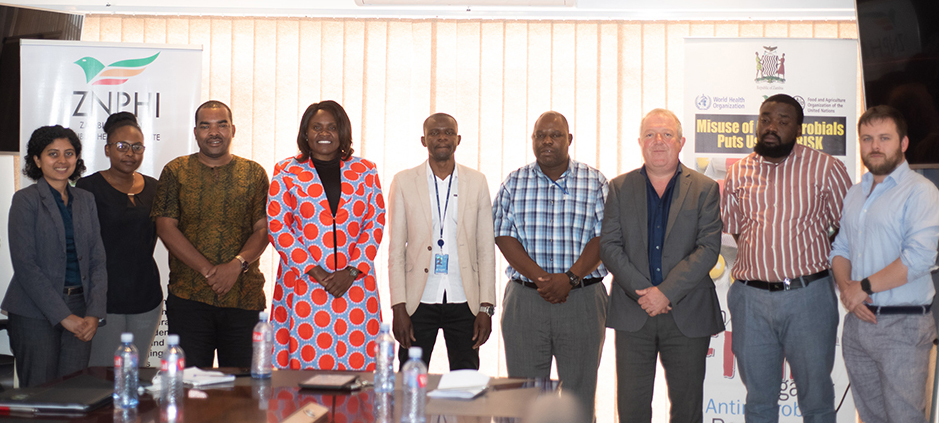In Zambia and Senegal we have been involved in the implementation of a platform designed to keep track of AMR pathogens and problems related to drug resistance. The project is a Foundation for Innovative (FIND) initiative funded by the GAMRIF grant (DFID / UK Government). FIND run projects in various countries in order to improve diagnostics to strengthen surveillance.
In Zambia we have implemented a surveillance system in a ‘One Health’ model, which means we are not just focusing on Human. We are focusing on Human, Animal, Food chain, and Antimicrobial usage.
In order to collect this data we have implemented Open Interop, which acts as the endpoint for all data to be stored ultimately in the One Health DHIS2 system. We have also used the WHONet Connector to collect historical data from existing WHONet databases.
Using these tools we are collecting data from various sources;
- Labs testing on human samples
- Labs testing live animals in veterinary clinics
- Labs testing animal products for human consumption/usage
- Labs testing animals that have died from disease, or unknown causes
- Imports of antimicrobials into the country and their distribution to medical facilities within the country
The data transmitted into the system was provided in various formats and different levels of quality. There is no single source.
In this project, we would have liked to have introduced improvements to labs and the current data collection method, moving to electronic capture, to ensure we were working with a ‘burden free’ model. We felt unable to add time or effort to already overworked and understaffed environments, therefore improvements to lab process and operation will be conducted during future funded work.
Open Interop played a vital role in terms of the project's success. It allowed us to provide a single ingress point for the data, acting as a middleware or interoperability layer where we can take many sources of data, map the data into a usable format and distribute those data sources to DHIS2, which is being used as the data warehouse/analytics platform.
In Senegal, Open Interop was deployed in a hands-off approach. A separate project team used this to import proof of concept data for data collected by the Institut Pasteur. This was also trialled alongside other ETL and middleware tools to demonstrate the flexibility of the overall platform.


